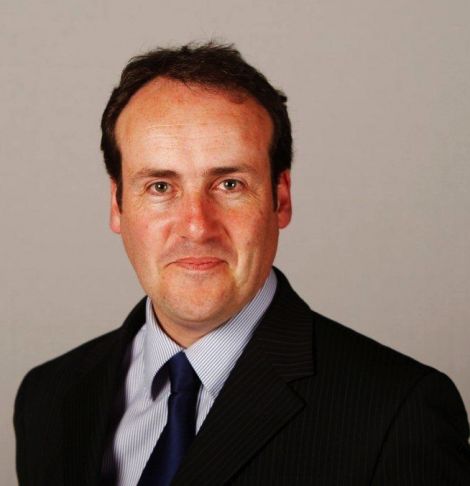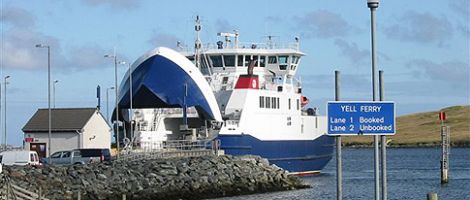News / Better transport and broadband are ‘essentials’ for future of Shetland
Aquaculture ‘stifled’ by lack of transport links
TRANSPORT and digital connectivity are the issues needing urgent attention according to isles’ responses to the draft National Islands Plan.
The Scottish Parliament’s Rural Economy and Connectivity Committee yesterday (Wednesday) considered a ream of input from across island areas to its draft National Islands Plan.
The plan sets out 13 “strategic objectives” but has come under fire for making no explicit references to fixed links, while ZetTrans, which lobbied heavily for changes to the freight service in the next Northern Isles ferry contract, say consultations have failed to be heeded “again and again”.
Announcing the plan last month, islands minister Paul Wheelhouse said it would be an “opportunity to set new standards in island policy”.
It will set out how the Scottish Government, local authorities and other public agencies might work to improve outcomes for island communities.
Ministers will be asked to report back to Scottish Parliament every year on progress towards the goals included in the National Islands Plan.
According to ZetTrans “both digital connectivity and transport should be prioritised” with both underpinning “other strategic objectives” like population levels, sustainable economic development, health, social care and wellbeing.
The response calls for “commitment of funding and resources to the achievement of these objectives – for example full and fair funding of Shetland’s inter-island ferries.”
The view is virtually echoed in the Shetland Partnership’s submission which says that “There are two areas that we feel have the potential to have transformational impacts on local outcomes – digital connectivity and transport (both internal and external).
“Improvements in these areas will help to improve outcomes across the range of issues identified in the draft NIP.
“‘Priority’ in this instance would entail the Scottish Government committing resources to these areas soon after the publication of the final Plan and we would cite full and fair funding of Shetland’s inter-island ferries as a practical example of this.”
Become a member of Shetland News
ZetTrans also slams the Scottish Government’s lack of response to other, supposedly exhaustive, consultations on transport links.
It says: “The aquaculture industry in Shetland is being stifled by inadequate transport links to the Scottish Mainland – an issue that has been raised and evidenced on multiple occasions with Transport Scotland but has still failed to influence any change in the Northern Isles ferry service provision when contracts were recently retendered.”
ZetTrans also identifies the lack of funding to implement internal transport changes aimed at making Shetland carbon neutral by 2045.
“There are plenty of energy efficient solutions to be had, and implementing them is do-able but the missing element is funding to do it”, adds the response.
The response acknowledges Shetland’s carbon emissions are “significantly higher than the national average and adds “investment in greener motor transport is essential – ferries, planes, buses and taxis – if such areas are really to contribute to climate change targets whilst maintaining adequate connectivity to support necessary economic and social outcomes.”
Shetland Amenity Trust, meanwhile, says that the climate emergency requires a more progressive target for net zero than 2045 and that the Extinction Rebellion target of net zero by 2025 is “ambitious” but “realistic” in Shetland.
The SAT response adds: “Connecting the islands to the mainland to benefit from renewable energy generated on and off-shore would enable the closure of our oil and gas fire power generation. This must be regulated for, not left to the market.
“Shetland is an economy built on the sunset industries of oil & gas and fishing. Without a clear steer from the Scottish Government on the future of these sectors in or out of the EU or in an independent Scotland there is no incentive to change. An emergency requires very clear and progressive plans and actions.
“This level of clarity is not visible in the plan”.
The owner of The Shetland Gallery – Britain’s “most northerly” art gallery, Alan Skinner, said that without fixed links, there is little hope for islands like Yell.
His response adds: “Without young families, our future is bleak. Yell will become an island of retired people, but there will not be local health provisions, because we cannot attract doctors.
“I can see Yell becoming almost completely depopulated unless we address the ferry issue, and this is where I see the proposed plan as being weak, because I cannot see any indication of the consideration of fixed links – i.e. bridges/tunnels, which have been so successful for our good friends in Norway and the Faroe Islands.”
According to Skinner, fixed links would make Lerwick with its jobs “easily commutable”, the local economy would be stimulated and Yell made more attractive to young families and doctors.
Skinner highlights “the massive threat” of wind farms in mainland Shetland and Yell, which would “destroy Shetland as we know it” and stop the growing tourist industry “in its tracks”.
The Scottish Parliament report of its rural economy committee will be published on Friday.
Become a member of Shetland News
Shetland News is asking its many readers to consider paying for membership to get additional features and services: -
- Remove non-local ads;
- Bookmark posts to read later;
- Exclusive curated weekly newsletter;
- Hide membership messages;
- Comments open for discussion.
If you appreciate what we do and feel strongly about impartial local journalism, then please become a member of Shetland News by either making a single payment, or setting up a monthly, quarterly or yearly subscription.





























































